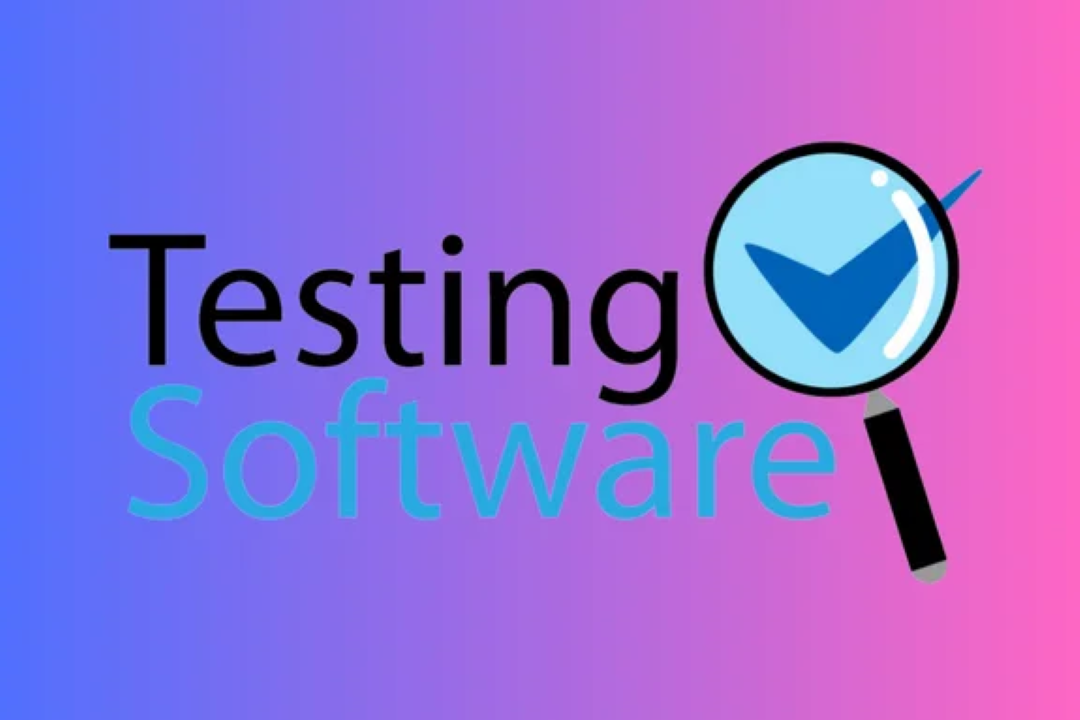Selenium Course Fees In Squad
The Selenium course fees at JustAcademy represent an investment in your professional growth in autom
Selenium Course Fees In Squad
The Selenium course fees at JustAcademy are designed to provide exceptional value for aspiring software testers and developers. This investment not only covers in-depth training on Selenium—one of the leading automation testing tools—but also includes access to interactive real-time projects that simulate actual industry challenges. By learning Selenium through hands-on experience, you enhance your skill set, making you more competitive in the job market. Ultimately, the fee reflects the quality of education and resources that empower you to excel in automated testing and boost your career prospects.
To Download Our Brochure: https://www.justacademy.co/download-brochure-for-free
Message us for more information: +91 9987184296
The Selenium course fees at JustAcademy are designed to provide exceptional value for aspiring software testers and developers. This investment not only covers in depth training on Selenium—one of the leading automation testing tools—but also includes access to interactive real time projects that simulate actual industry challenges. By learning Selenium through hands on experience, you enhance your skill set, making you more competitive in the job market. Ultimately, the fee reflects the quality of education and resources that empower you to excel in automated testing and boost your career prospects.
Course Overview
The “Selenium Course Fees in Squad” offered by JustAcademy provides an in-depth exploration of Selenium, a powerful tool for automating web applications. This course is designed for individuals aiming to enhance their testing skills through practical, hands-on experience with real-time projects. Students will learn the fundamentals of Selenium, including its architecture, key components, and integrations with other tools. The curriculum covers best practices, test framework design, and strategies for efficient test automation. With experienced instructors guiding the learning process, participants will graduate with the skills necessary to apply Selenium effectively in various testing environments, preparing them for rewarding careers in software quality assurance and testing.
Course Description
The “Selenium Course Fees in Squad” at JustAcademy is a comprehensive program designed to equip students with the essential skills needed for effective test automation using Selenium. This course covers a wide range of topics, including the fundamental concepts of Selenium, its architecture, best practices in test design, and real-time project implementation. Participants will engage in hands-on sessions to reinforce their learning and gain practical experience in writing and executing automated test scripts. With insights from industry experts, this course prepares learners to excel in software testing roles, enhancing their employability and proficiency in automation testing methodologies.
Key Features
1 - Comprehensive Tool Coverage: Provides hands-on training with a range of industry-standard testing tools, including Selenium, JIRA, LoadRunner, and TestRail.
2) Practical Exercises: Features real-world exercises and case studies to apply tools in various testing scenarios.
3) Interactive Learning: Includes interactive sessions with industry experts for personalized feedback and guidance.
4) Detailed Tutorials: Offers extensive tutorials and documentation on tool functionalities and best practices.
5) Advanced Techniques: Covers both fundamental and advanced techniques for using testing tools effectively.
6) Data Visualization: Integrates tools for visualizing test metrics and results, enhancing data interpretation and decision-making.
7) Tool Integration: Teaches how to integrate testing tools into the software development lifecycle for streamlined workflows.
8) Project-Based Learning: Focuses on project-based learning to build practical skills and create a portfolio of completed tasks.
9) Career Support: Provides resources and support for applying learned skills to real-world job scenarios, including resume building and interview preparation.
10) Up-to-Date Content: Ensures that course materials reflect the latest industry standards and tool updates.
Benefits of taking our course
Functional Tools
1 - Selenium WebDriver: Selenium WebDriver is the core component of the Selenium suite that allows interaction with web applications in a browser. It provides a programming interface to create and execute test scripts across various browsers such as Chrome, Firefox, and Edge. With the Selenium WebDriver, students learn how to automate browser actions like clicking buttons, filling out forms, and navigating pages. By understanding the underlying mechanics of WebDriver, learners can write efficient and robust test cases that simulate real user interactions.
2) Selenium IDE: Selenium IDE is an integrated development environment for creating Selenium test cases directly in the browser. This tool is particularly useful for beginners, as it offers a user friendly interface for recording and playing back tests. Learners in the program will utilize Selenium IDE to quickly prototype test cases and understand test flow before diving deeper into coding with WebDriver. It enables students to grasp the basics of automation testing effortlessly, making it an essential tool in the training curriculum.
3) TestNG Framework: TestNG is a testing framework inspired by JUnit and NUnit, designed to provide a simple way to write tests and organize them effectively. It supports various testing categories like unit testing, integration testing, and end to end testing. The incorporation of TestNG in the Selenium course will introduce students to advanced test configurations, parallel test execution, and detailed reporting. This framework plays a critical role in enhancing test organization and making test runs more efficient.
4) Apache Maven: Apache Maven is a project management tool that automates the build process and dependency management in Java based projects. In the Selenium course, students will learn how to use Maven to manage project libraries easily and streamline their project setup. By integrating Maven, learners can effortlessly add necessary dependencies for Selenium, TestNG, and other libraries, thus simplifying the testing project structure while improving maintainability.
5) Cucumber: Cucumber is a popular Behavior Driven Development (BDD) tool that allows testers to write test cases in a human readable format known as Gherkin. In the training program, students will explore how to implement Cucumber with Selenium to improve collaboration between developers and testers, promoting a shared understanding of application functionality. By using Cucumber, learners will gain insights into writing reusable test specifications and embracing best practices in software development.
6) Jenkins: Jenkins is an open source automation server that is used to automate the software development process, including building, testing, and deploying applications. Students enrolling in the Selenium course will learn how to integrate Selenium tests with Jenkins to enable Continuous Integration/Continuous Deployment (CI/CD) practices. By setting up automated test execution triggers in Jenkins, learners will understand how to ensure quality control at every stage of development, thus reinforcing the significance of automated testing in modern software practices.
7) Allure Reports: Allure Reports is a flexible reporting tool that provides comprehensive and user friendly reports for automated tests. The inclusion of Allure in the Selenium course will teach students how to generate appealing and detailed reports from their test cases. With Allure, learners can gain insights into test execution results, including pass/fail status, execution duration, and individual test case performance, thereby enhancing the quality of their test reporting practices.
8) Page Object Model (POM): The Page Object Model is a design pattern aimed at enhancing test maintenance and minimizing code duplication in Selenium test automation. By organizing test code in a way that separates the user interface (UI) interactions from test logic, learners will explore how to create reusable page classes that represent different web pages of the application. This architecture not only promotes cleaner code but also makes it easier to update tests when UI changes occur, making it a vital aspect of the training curriculum.
9) API Testing with RestAssured: While Selenium primarily focuses on testing web applications' UI, incorporating API testing is crucial to ensure the backend services function correctly. In this section, learners will be introduced to RestAssured, a Java library for testing RESTful APIs. They will gain hands on experience in validating HTTP responses, status codes, and data returned from API endpoints, thus expanding their skill set to include comprehensive testing of both frontend and backend systems.
10) Cross Browser Testing: Understanding the importance of cross browser compatibility is key for any web application. In the Selenium course, students will learn techniques for performing cross browser testing to ensure that applications work seamlessly across different browsers and devices. This includes configuring Selenium Grid and using cloud based platforms to run tests in various environments, thereby guaranteeing that end users enjoy a consistent experience irrespective of their browser choice.
11 - Exception Handling and Debugging: Developing robust test scripts requires adeptness in handling exceptions and debugging errors. The course will cover common exceptions encountered during automation testing with Selenium and illustrate strategies to troubleshoot and resolve these issues. Learners will become proficient in implementing waiting strategies, try catch blocks, and debugging tools to create resilient and reliable test scripts.
12) Integration with Test Management Tools: In modern software development environments, integrating automation tests with test management tools is essential for tracking test progress and generating meaningful reports. During the training, students will learn how to integrate Selenium tests with tools like JIRA, TestRail, or Zephyr. This integration not only aids in maintaining thorough documentation but also enhances collaboration within cross functional teams.
13) Mobile Testing with Appium: As mobile applications gain prominence, incorporating mobile testing into the curriculum is crucial. Students will discover how to use Appium, an open source mobile application testing framework, that allows them to extend their Selenium knowledge to automate mobile web and native applications across iOS and Android devices. This becomes a valuable asset as mobile testing remains a critical component of software quality assurance.
14) Version Control with Git: Understanding version control is vital for any development or testing process. The course will introduce students to Git, a widely used version control system, enabling them to manage their test scripts efficiently. Learners will grasp concepts like branching, merging, and collaboration through platforms like GitHub or GitLab, which ensures better organization and teamwork in automation projects.
15) Performance Testing Basics: While primarily focusing on functional testing with Selenium, students will be introduced to performance testing essentials. They will learn how to recognize performance bottlenecks and how automation testing integrates into broader performance testing strategies. This foundational knowledge equips learners with the ability to ask performance related questions during the testing phase, enhancing the quality of the final product.
16) User Acceptance Testing (UAT) with Selenium: User Acceptance Testing is a critical phase in software development where end users validate the functionality and usability of an application. In this section of the course, students will learn how to create automated tests that mimic user behavior and scenarios during UAT. Learners will understand the significance of UAT and how automated tests can expedite the process, ensuring that applications meet user expectations before deployment.
17) Continuous Learning and Community Engagement: The field of automation testing is ever evolving, and staying current with new tools and techniques is imperative. The course will emphasize the importance of continuous learning and community engagement. Students will be encouraged to follow industry news, participate in forums, and contribute to open source projects. This engagement fosters a growth mindset and builds a professional network that supports ongoing improvement in their testing careers.
Each of these components not only provides a deeper dive into the world of Selenium and automation testing but also prepares learners for real world challenges they might face in their careers. By emphasizing both technical skills and industry best practices, JustAcademy’s certification program delivers a comprehensive training experience.
Browse our course links : https://www.justacademy.co/all-courses
To Join our FREE DEMO Session:
This information is sourced from JustAcademy
Contact Info:
Roshan Chaturvedi
Message us on Whatsapp:
Email id: info@justacademy.co












